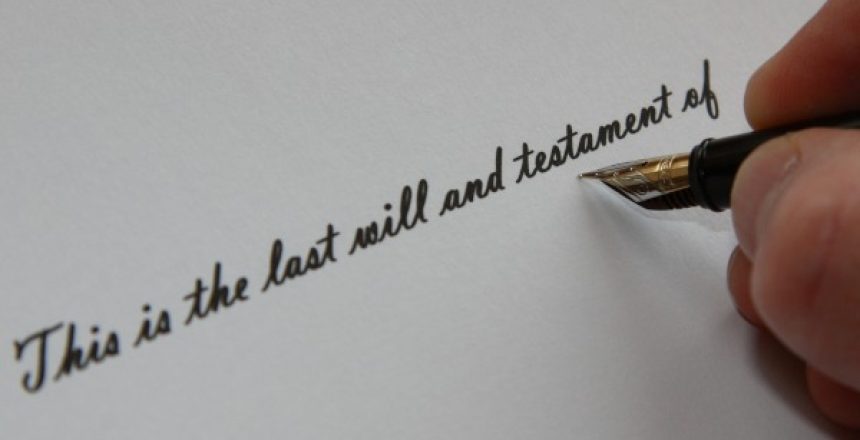Drawing up a handwritten Will might sound the most straightforward way of putting your affairs in order. But is it really?
Perhaps, the issues of using handwritten Wills are best explained in a recently decided case in America involving the estate of the late Aretha Franklin. Whilst this case was decided in a two-day jury trial in Michigan USA and whilst US law deals with this differently from Scots law, the underlying principles are the same. Handwritten Wills can cause confusion and having more than one of them makes it exceedingly difficult to work out which one accurately reflects your wishes.
Is a handwritten Will valid in Scotland?
A handwritten Will may be valid in Scotland provided certain rules are followed. In Scotland, a handwritten Will is known as a “holograph” Will. To be valid, it must properly identify the testator (the person making the Will) and it must appoint an executor (the person who will administer the estate). It must contain instructions to the executor about the distribution of the estate. Finally, it must be signed and dated by the testator. There are also formalities surrounding the execution of Wills in Scotland, one of which is that the Will must be signed on every page by the testator. In the case of a handwritten Will, this can be confusing depending on whether the Will has been written on a single continuous piece of paper. A failure in any one of these requirements might make the Will invalid. For this reason, handwritten Wills might fail and are to be discouraged.
What happens if there are multiple Wills?
When there are multiple Wills, the question always arises as to which Will is the one the testator wishes the executor to follow. When there is more than one Will, if the intention is that the latest Will should prevail, then it must contain a clause revoking (cancelling) any prior Will made by the testator. Including a clause of this nature will make it clear which Will is to be preferred. It is also good practice to destroy any prior Wills to help avoid confusion.
What happened in the Aretha Franklin case?
When Aretha Franklin died in 2018, it was initially believed she had not made a Will. Accordingly, it was agreed that her four sons would share the estate equally. However, in 2019, two handwritten Wills were discovered in her house. The earliest was dated 2010 and was found in a locked cupboard. It had been signed on every page and had also been notarised. The later Will was dated 2014 and was found in a spiral notebook beneath a cushion on the couch. The distribution of the estate in this later Will differed from that in the earlier Will.
Whilst the 2010 Will instructed all four sons to share equally in the estate, the late singer directed that to benefit from the estate, Kecalf and Edward Franklin “must take business classes and get a certificate or a degree”. The later Will did not contain such a provision. It also stated that Kecalf would receive his later mother’s house in Bloomfield Hills. The house was valued at $1.1 million when Aretha Franklin died.
Kecalf and Edward raised proceedings in the Probate Court in Michigan to have the 2014 Will declared the ruling Will. Another son, Ted White II, who played guitar in Aretha Franklin’s band, objected to this. He claimed his mother would always get important documents properly certified and cited the notarisation of the 2010 Will. Clarence, the late singer’s oldest son has special needs and wasn’t involved in the court proceedings. His brothers agreed that Clarence would receive a percentage of the estate irrespective of how the case turned out.
After a two-day trial, the jury took less than an hour to find the 2014 Will to be the preferred Will which should be followed.
How can you avoid expensive court proceedings?
The best way to avoid expensive and time-consuming court proceedings is to instruct a solicitor to prepare your Will. Your solicitor will ensure that the Will is fully compliant with Scots Law and that it is properly signed.
Our solicitors have many years of experience in preparing Wills for clients and can give you the guidance you need when preparing yours. If you would like to discuss drawing up your Will or changing an existing Will, please contact us.
